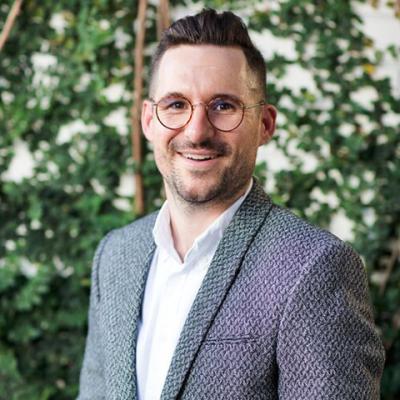Helping to prevent suicide in Cairns, Cape York and the Torres Strait was not something Mitchell Stalker necessarily envisaged when he was growing up in Ipswich.
However, that’s exactly where the UQ Master of Public Health graduate is now situated, having secured a significant contract with his business Beacon Strategies.
“The last 18 months we’ve been assisting the Cairns and Hinterland region with a suicide prevention and action plan,” says Mitchell.
“It’s a strategy owned by the community and clearly outlines what needs to be done. That’s been a big highlight for me to work on, particularly as we have now established three staff up there."
“In the same breath we’re looking to do similar in the Cape and Torres Strait. To me, it’s an incredibly exciting piece of work and it shows what variables we have to work with here in Queensland and Australia. You couldn’t get much different to the city than Cape York and the Torres Strait.”
The Beacon Strategies story

The Beacon Strategies team
Beacon Strategies was a brainchild hatched between Mitchell and former St Edmund’s College, Ipswich, schoolmate Elliot Parkinson.
After both had worked within large government organisations, they found a mutual desire to make a sweeping impact on serious health issues by taking a specialised – yet highly agile – approach as consultants.
“Not many organisations have people like us just sitting around to pick up special projects and make them work,” says Mitchell.
“Our work mainly falls into one of two categories. We work a lot with Primary Health Networks to provide sound advice about where funding should be allocated and how programs should be designed to make a difference for vulnerable community members."
“We also do a lot of work with not-for-profit organisations to support them in designing or redesigning services. Many not-for-profits have difficulties in resourcing the ‘thinking’ part of operationalising a new program or service, so we focus in on how we can make their services more impactful and sustainable.”
What led Mitchell down this path?
A UQ Bachelor of Health Sciences graduate who later enrolled in the Master of Public Health, Mitchell saw many classmates head in the direction of working in communicable diseases or international development projects.
He always felt his core skills and passions lent themselves to a different area – attributes like analysing information and making decisions about suitable courses of action.
“If you’d asked me five years ago if what I did was similar to business development, I’d have said ‘get out of town’,” Mitchell laughs.
“Now I understand how much of an impact you can potentially have when you take a service and redesign it to better meet the needs of people accessing it.
"Spending time in some large government organisations, I became accustomed to how long it could take to get the cogs spinning on something that would make lasting change. That experience taught me patience and following due process, but I also saw some elements that were better discarded … actions that were little more than pushing paper around and causing duplication and wastage."
“These days I revel in the fact we make decisions at a point in time, do it quickly and with almost immediate impact.”
Learn more about the Master of Public Health.






